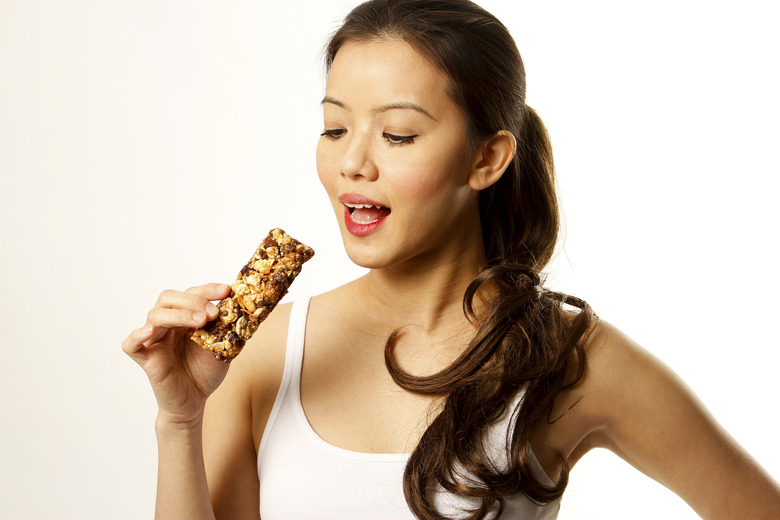A 'Breakfast Bar' Is A Lie And You Shouldn't Eat One
They aren't breakfast. And they need to stop parading as breakfast, ASAP.
They're lingering in the protein bar and cereal aisles of grocery stores, haunting us with their promises of fiber, protein, and a war on snack cravings until lunch.
Sometimes people buy them, convinced by the persuasive language. You grab a bar on the way out the door. Breakfast! You feel so healthy, and you chow down in the car on the way to work, to drop off the kids, or whatever else. Maybe you even feed these bars to your children, assuming they're enough for a complete, healthy meal.
Fast-forward to one hour later, when the hunger attacks. Overwhelming, vicious storms of cravings hit at 11:00 a.m., gnawing at you to eat something fatty. Maybe you crave a creamy, syrupy pumpkin spice latte. Maybe you cave and eat a brownie (or three) before lunch. Whatever your snack attack ends up being, one thing's for sure: You feel ashamed. You gave in, even after you ate breakfast. You clearly just can't be trusted around food. You just can't control your cravings before lunch.
But you weren't the problem in this scenario. The bar was.
Those bars are a total misnomer. The term "breakfast" bar brings up the essential question: What do we mean by "breakfast"? It calls for something different for every person — and even for every day — but one thing's for sure. It doesn't mean 210 calories. It doesn't mean little to no dietary fat. And it sure shouldn't mean heaps of added sugar.
The marketing is misleading. At first glance, the bar looks so healthy and filling. It's loaded with fiber, the packaging reads. It's got whole grains. Maybe it even boasts gluten-free status, or brags that it's a "good source of protein."
But here's the bad news about these bars: There's not nearly enough nutrition to hold you over for more than an hour. Typical "breakfast" bars have less nutritional value than most snack bars. Both kinds of bars clock in at around 200 calories — the average size nutritionists recommend for a snack. But everything else about them is different, and the breakfast bars are way worse.
Many snack bars can have up to 10 grams of protein. These breakfast bars have eight or less.
Many snack bars have at least 10 grams of healthy fats from nuts, seeds, and chia. These breakfast bars have nine grams of fat, many of which are from canola oil.
Many snack bars are made with whole, real food ingredients like dates, almonds, and oats. These breakfast bars have mysterious gums and additives and are filled with non-nutritious fillers like "raisin paste" and syrups.
So by eating a "breakfast" bar for breakfast, you're essentially eating a not-so-nutritious, sugar-laden, fat-deprived snack.
No wonder you're hungry two hours later. You never ate breakfast in the first place. Without even knowing it, these companies fooled you into making one of the biggest diet mistakes of all time — and had you thinking it was your fault all along.
